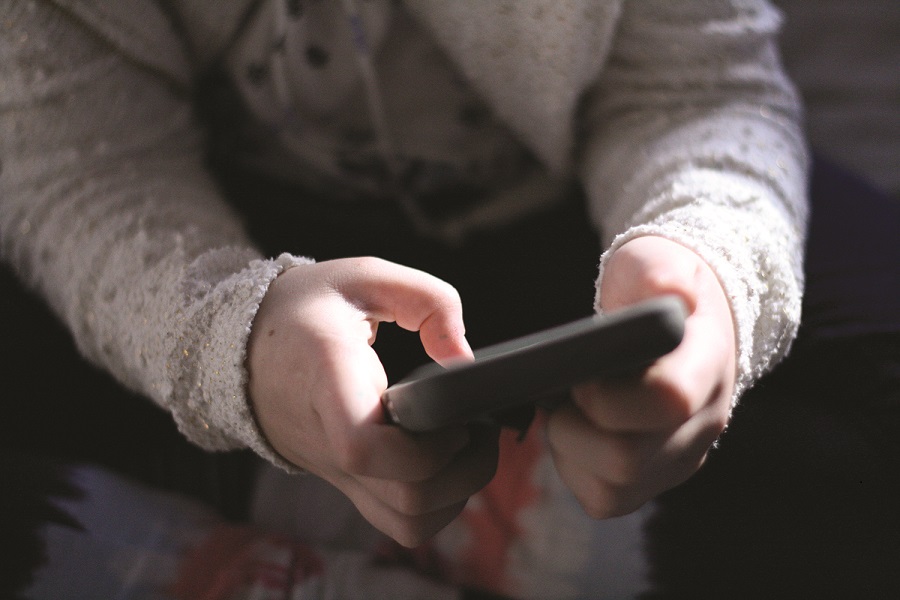This Op-Ed was originally published by the Provincetown Independent.
TAKING BACK CHILDHOOD
Why Babies Shouldn’t Be Looking at Screens
New evidence that infants and toddlers are hurt by excessive exposure
A couple of years after smartphones became popular, my friend Joyce told me a story I found troubling.
She had recently been on a city bus, sitting in an aisle seat. Directly across the way, an infant sat on a woman’s lap. Soon, the child looked Joyce straight in the eye and they started interacting — making faces at each other, smiling, shaking their heads, laughing.
Then, in an instant, the scene changed. The caregiver pulled an iPhone from her bag and gave it to the child. The baby was instantly absorbed by the screen and she never looked at Joyce again.
It was during this same period that I began worrying about the ways that smartphones and other digital devices might be affecting the development of babies and young children. I was seeing parents use phones to distract crying babies and to provide entertainment in all kinds of situations like the one Joyce observed on the bus. Over and over, when kids were upset, I’d seen parents rely on screens’ ability to command attention. Gone were the critical opportunities for kids to build some inner coping skills.

I knew that babies’ brains develop rapidly in the early months and years of life. At birth, the brain is little more than one-quarter of the volume and weight of an adult’s. By age three, it’s 80 percent of the adult size. During these early years, neurons are multiplying and synapses are forming in the brain at a faster rate than at any other time in life.
This brain development happens as babies interact with other people, using their senses to engage with and discover the world around them. But a screen is just a screen. By design, it captures a baby’s full attention. Instead of interacting with the world physically, sensorially, babies react to what they see on the screen. It’s entertainment, often programmed to perfection. And that’s it.
National and international pediatric associations recommend avoiding screen time for babies and toddlers except for video chats with grandparents and other family members or friends. But marketing messages viewed by millions on YouTube, TikTok, and other places target parents, promising video apps that soothe and stimulate babies and boost their learning. Most parents who give screens to their babies believe these false promises.
It’s now a decade since Joyce’s bus ride, and we have at least a handful of credible research studies that tell us about the potentially harmful effects of screens. A team of researchers at the Hospital for Sick Children in Toronto studied 894 infants and toddlers and found that the more screen time that a preverbal child has “the more likely the child was to have expressive speech delays.”
There is evidence that frequent screen exposure in infancy diminishes a child’s capacity for self-regulation — the ability to control emotions and impulses. And some of the critical cognitive abilities that are referred to as executive functions (planning, organizing, and carrying out tasks) are also diminished when infants and toddlers have frequent exposure to screens. A longitudinal cohort study in Singapore, published this year, “has confirmed that excessive screen time during infancy is linked to detrimental outcomes in cognitive functions, which continue to be apparent after eight years of age.”
Another recent study found that only about half of the U.S. parents surveyed knew about the American Academy of Pediatrics guidelines for screen time for babies and toddlers. What we need now is parent education and action.
Amid all these red flags — and the many unknowns as a tech-infused generation continues to age — we urgently need a public health campaign to educate families about the potential dangers of early screen use. We need wide participation from pediatricians who could disseminate this information. We need stronger regulations on false and misleading advertising to parents. And we need advocates to talk with parents about screen exposure so we can reclaim the healthy early experiences that young kids need to develop to their full potential.
Nancy Carlsson-Paige is professor emerita at Lesley University, author of Taking Back Childhood, and cofounder of Defending the Early Years. She lives in Somerville and Truro.
